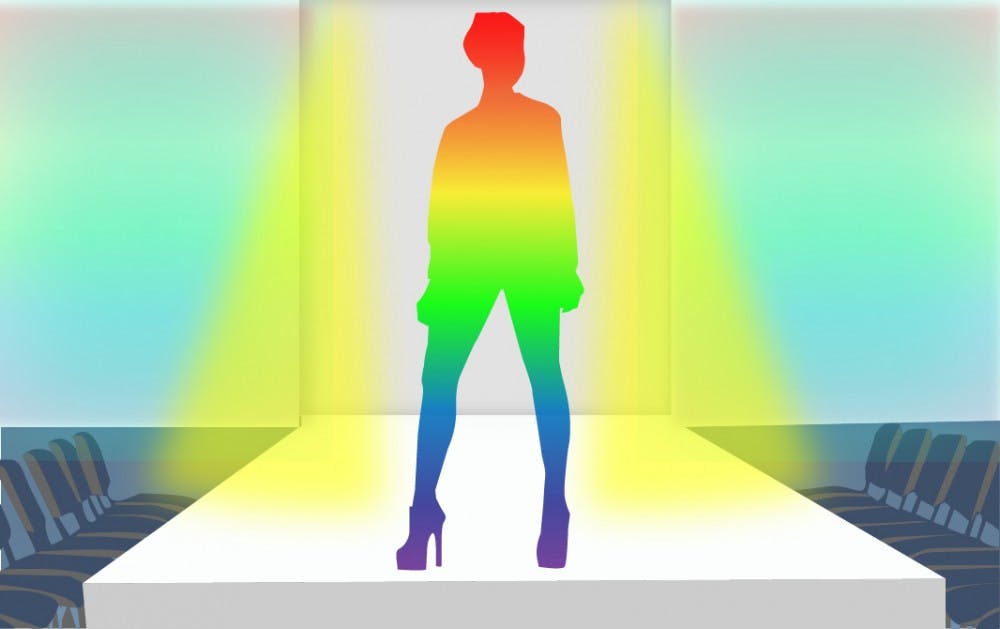In Harlem, New York in 1980, young men from across the city gathered at night to converge on what would come to be known as the ballroom scene. Attendees didn’t practice salsa or the waltz, but their own unique form of movement, known as voguing.
Today, the ballroom scene and the community it has amassed lives on – even here at ASU thanks to Come AZ You Are. The event, which serves as an homage to the history of balls, is a four-day festival that will feature film screenings, dance classes, dance battles and more.
Marcus White, an assistant professor of dance and director of Come AZ You Are, said the festival is a celebration of joy and social interaction inspired by the underground culture of ballroom.
“Come AZ You Are certainly is a space for anyone, regardless of their background, regardless of where they're coming from, their perspective, their voice,” White said. “And it's a space of welcome and it's a space of joy. I mean, it's not a space of shade, it's not a space of hatred.”
Historically, balls have served as both a competition and a celebration of LGBTQ+ culture. White said that hosting these events allow people who have been historically marginalized to develop their own narrative through the use of arts and culture.
De’Aviyon Samuels, a sophomore majoring in dance education and the donation coordinator for Come AZ You Are, said the festival is a great place for people for whom words don't effectively communicate what they feel.
"I think it's a way for us to speak our truth within any art form," Samuels said. “Personally, as an education major, my focus this year has been about how do I as a woman of color show people my story, not only in our dance program but also within society."
She said in the political climate today, the festival is needed now more than ever.
“Things keep hitting us when it comes to politics," Samuels said. "I feel like this is now the time where my voice needs to be heard. People need to hear my story."
While balls and the culture surrounding them were largely underground for a long time, their impact on modern pop culture is evident.
“I think that the earliest example of ballroom culture, making it to the mainstream is Madonna's 'Vogue' obviously,” White said.
While the song and video in question popularized “voguing,” the dance had existed for a long time in ball culture since its creation by members of the black and Latinx communities mostly comprising of gay men.
While its form has changed over the decades, it’s characterized today by the duality of femininity and ferocity in its movements.
The dance served as a way to express oneself as feminine or masculine as they wanted to be seen, said Carlos Tello Solano, a senior majoring in psychology and dance and the event coordinator for the Come AZ You Are fashion show.
“The whole goal of ballroom culture is to be very expressive of yourself and just bringing out different ideas and play different roles that you may want to portray that day,” Tello Solano said.
In balls, participants can choose which categories to participate in – school boy, executive, royalty and others. While the categories serve primarily as fun dress-up opportunities in many circles today, at their inception they were wish fulfillment.
In a time when young LGBTQ+ black and Latinx men in Harlem had few opportunities, balls allowed them to be whoever they wanted for a night and to be lauded for their impressions.
Another set of categories, “realness,” measures how well participants can emulate a certain look and pass in the real world – a world in which many of the individuals had slim hopes of being able to pursue these roles.
Many of the founders and stars of ball culture lived lives deeply influenced by poverty, violence and the AIDS epidemic.
As a nod to this history, Come AZ You Are will be offering free HIV testing on April 28, the final day of the festival. The event will run from April 24 to April 28 at various locations across Tempe and Phoenix.
“The greatest hope is that it really is a space for folks who feel voiceless, who feel they don’t have the means to say what they gotta say … my greatest hope is that they can find a space here,” White said.
Reach the reporter at snalcan1@asu.edu or follow @SarahAlcantar on Twitter.
Like The State Press on Facebook and follow @statepress on Twitter.




